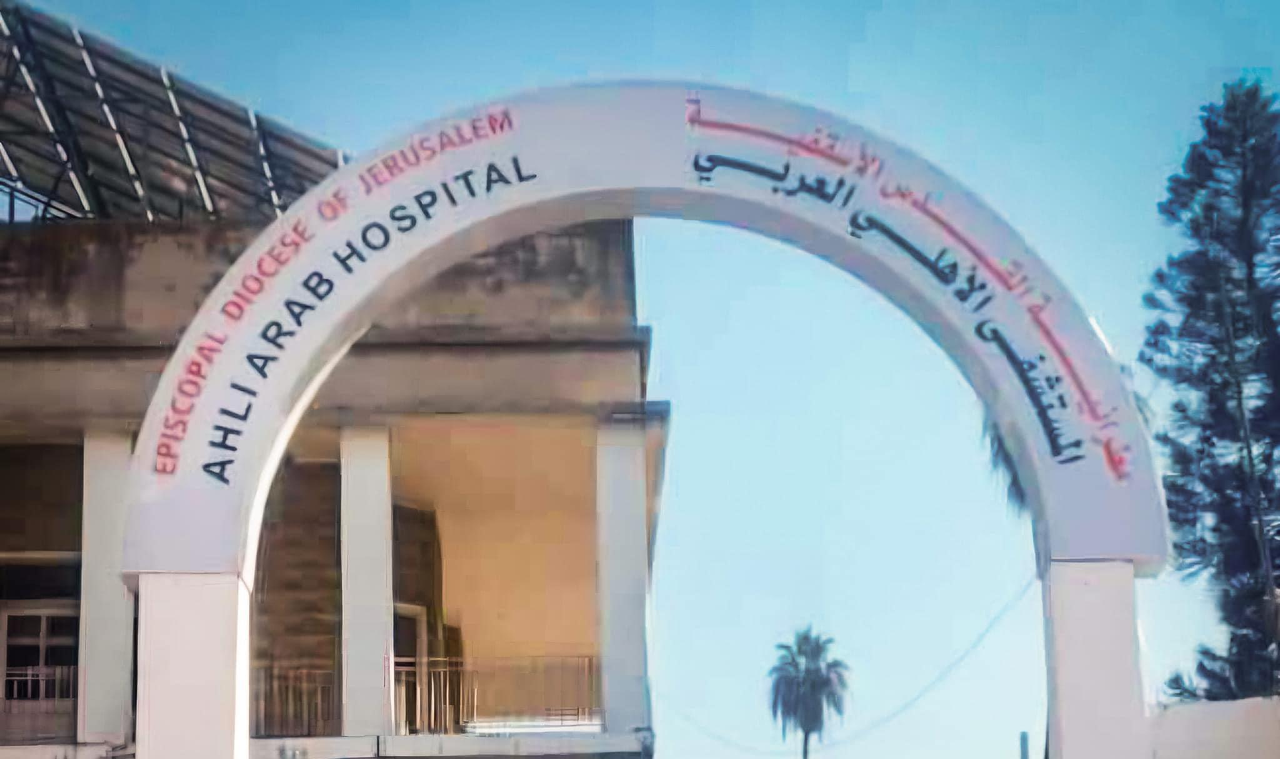
Ahli Hospital is One of Gaza’s Last Hospitals Still Standing, Still Serving: An Update from Dr. Suhaila Tarazi
February 4, 2026- Posted in Diocese of Jerusalem, Gaza, Healthcare, Institution Spotlight, Palestine, Video

February 4, 2026- Posted in Diocese of Jerusalem, Gaza, Healthcare, Institution Spotlight, Palestine, Video
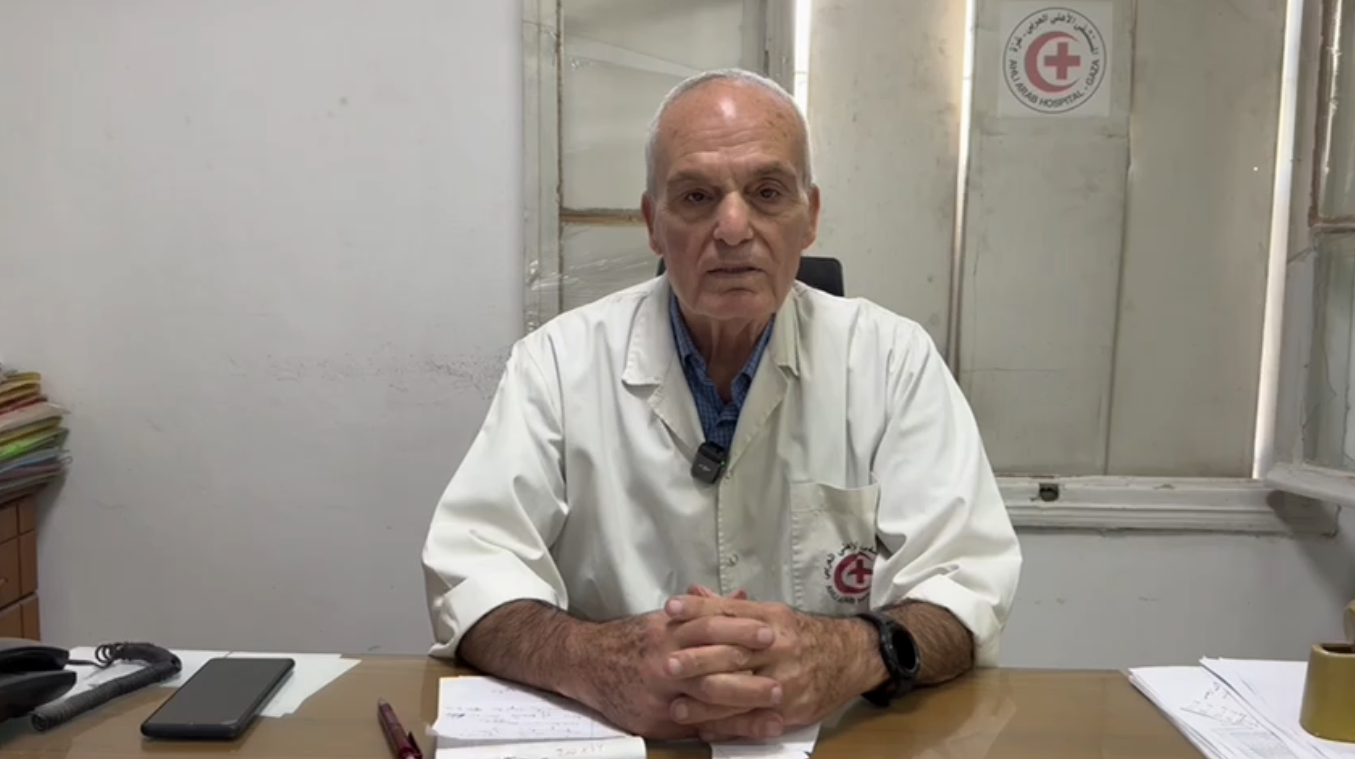
October 14, 2025- Posted in Diocese of Jerusalem, Gaza, Healthcare, Institution Spotlight, Palestine, Video
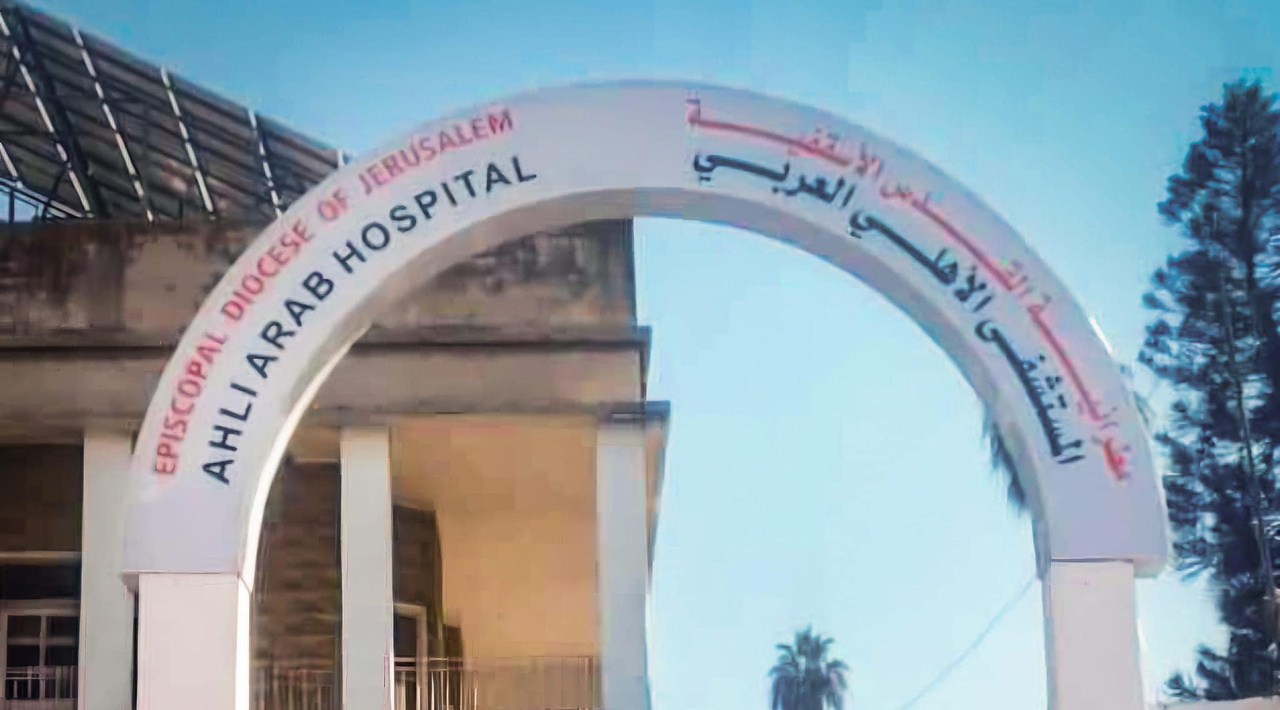
August 18, 2025- Posted in Diocese of Jerusalem, Gaza, Healthcare, Institution Spotlight, Palestine, Video

June 5, 2025- Posted in Diocese of Jerusalem, Gaza, Healthcare, Institution Spotlight, Palestine, Video

April 13, 2025- Posted in Diocese of Jerusalem, Gaza, Healthcare, Institution Spotlight, Palestine, Video

March 20, 2025- Posted in Diocese of Jerusalem, Gaza, Healthcare, Institution Spotlight, Palestine, Video
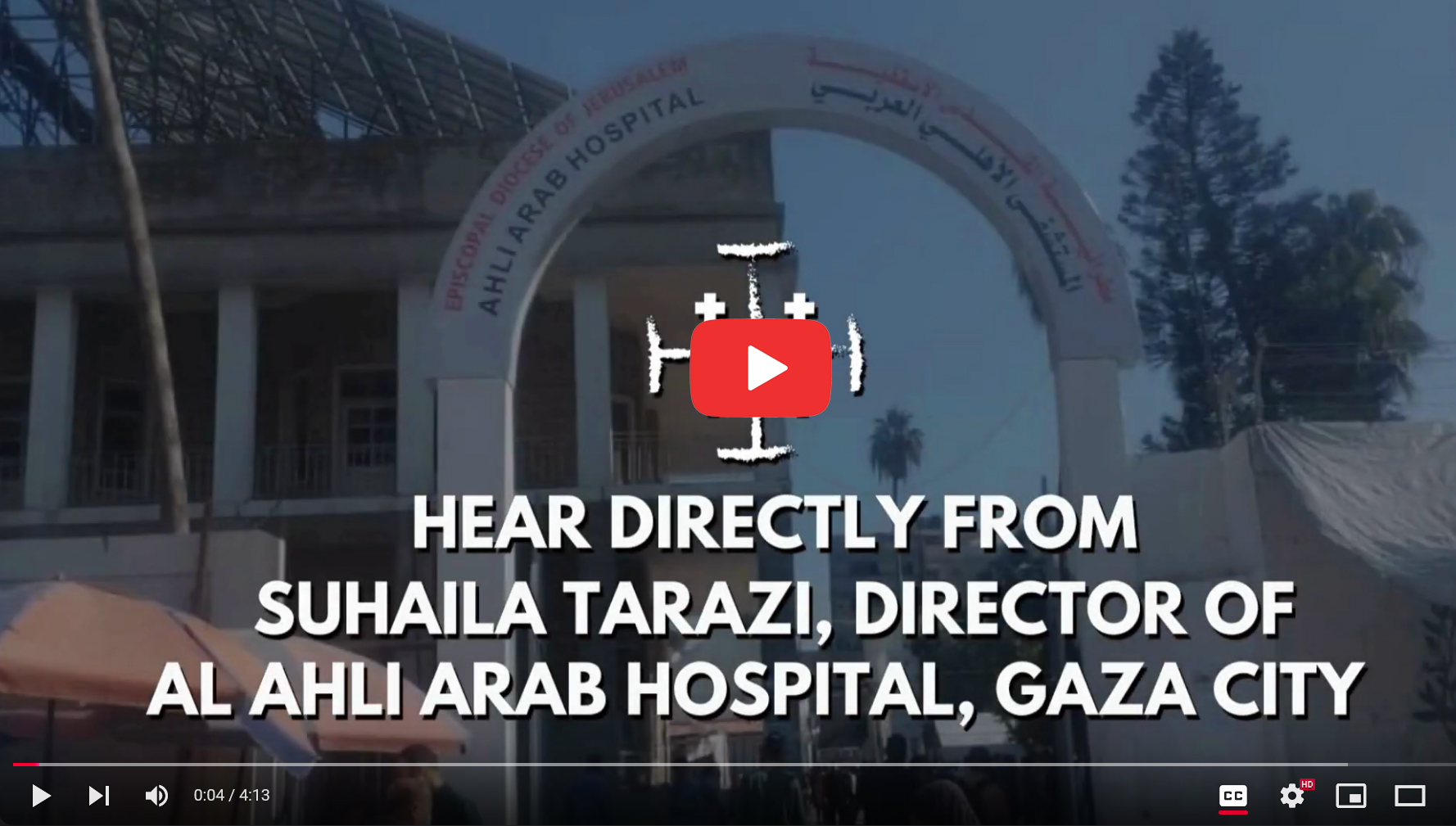
November 13, 2024- Posted in Diocese of Jerusalem, Gaza, Healthcare, Institution Spotlight, Palestine, Video
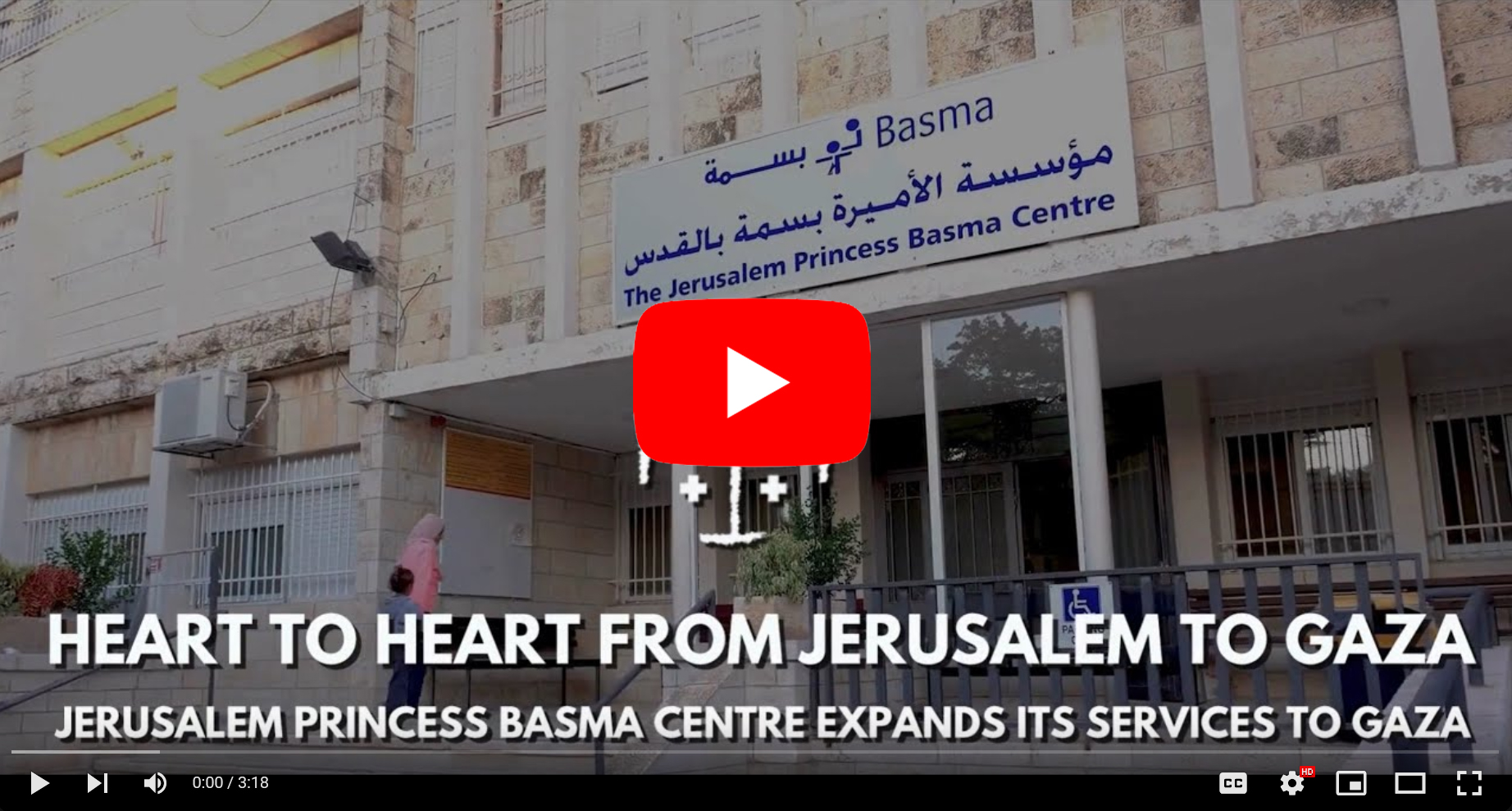
October 30, 2024- Posted in Diocese of Jerusalem, Disabilities, Education, Gaza, Healthcare, Institution Spotlight, Jerusalem, Palestine
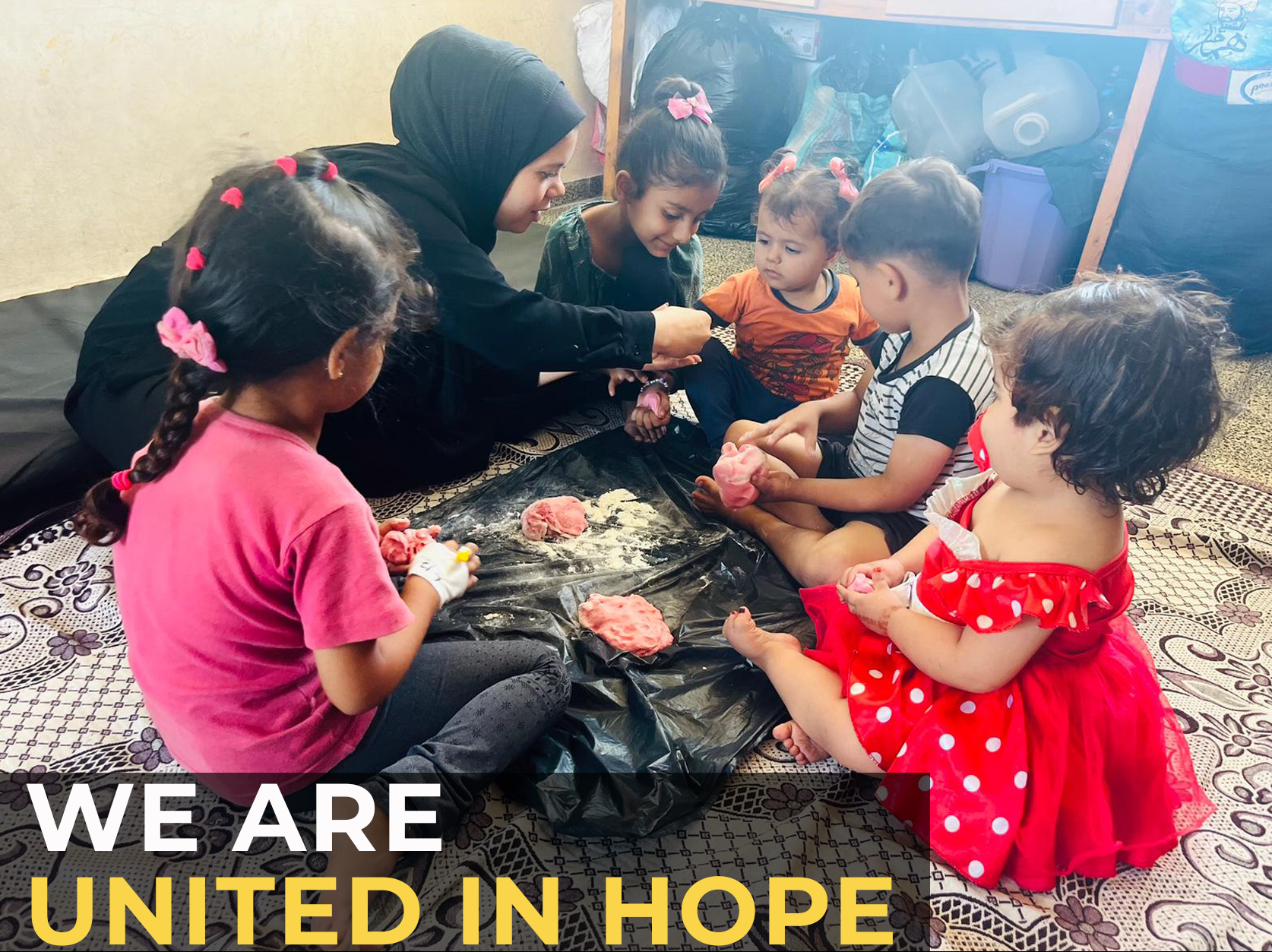
October 15, 2024- Posted in AFEDJ, Diocese of Jerusalem, Disabilities, Education, Gaza, Healthcare, Israel, Jerusalem, Jordan, Lebanon, Palestine, Syria, Vocational Education, West Bank
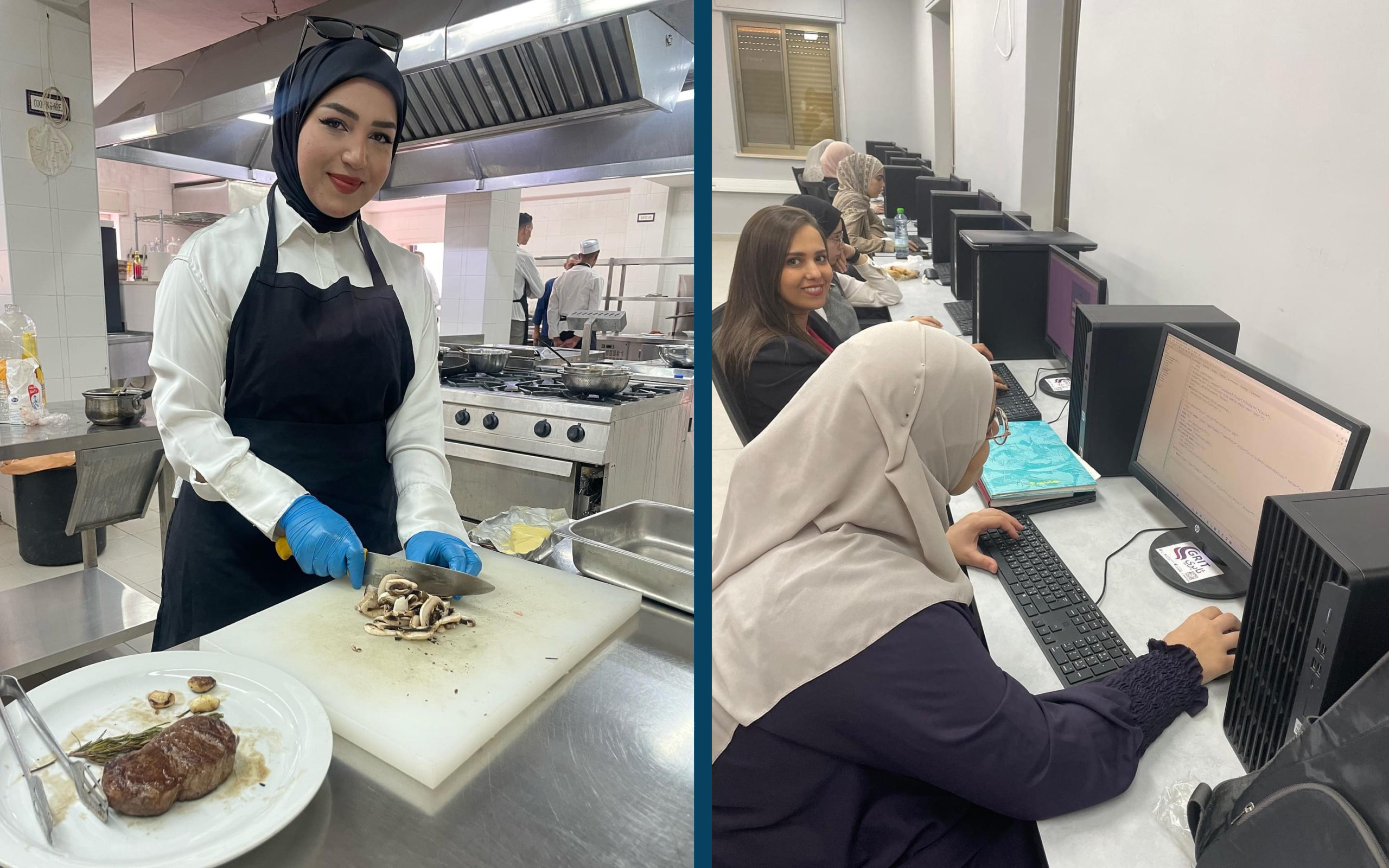
October 9, 2024- Posted in Education, Palestine, Vocational Education, West Bank
Transforming lives of the vulnerable and displaced in the Middle East through support of the Episcopal Diocese of Jerusalem and its schools, hospitals, and centers for children with disabilities